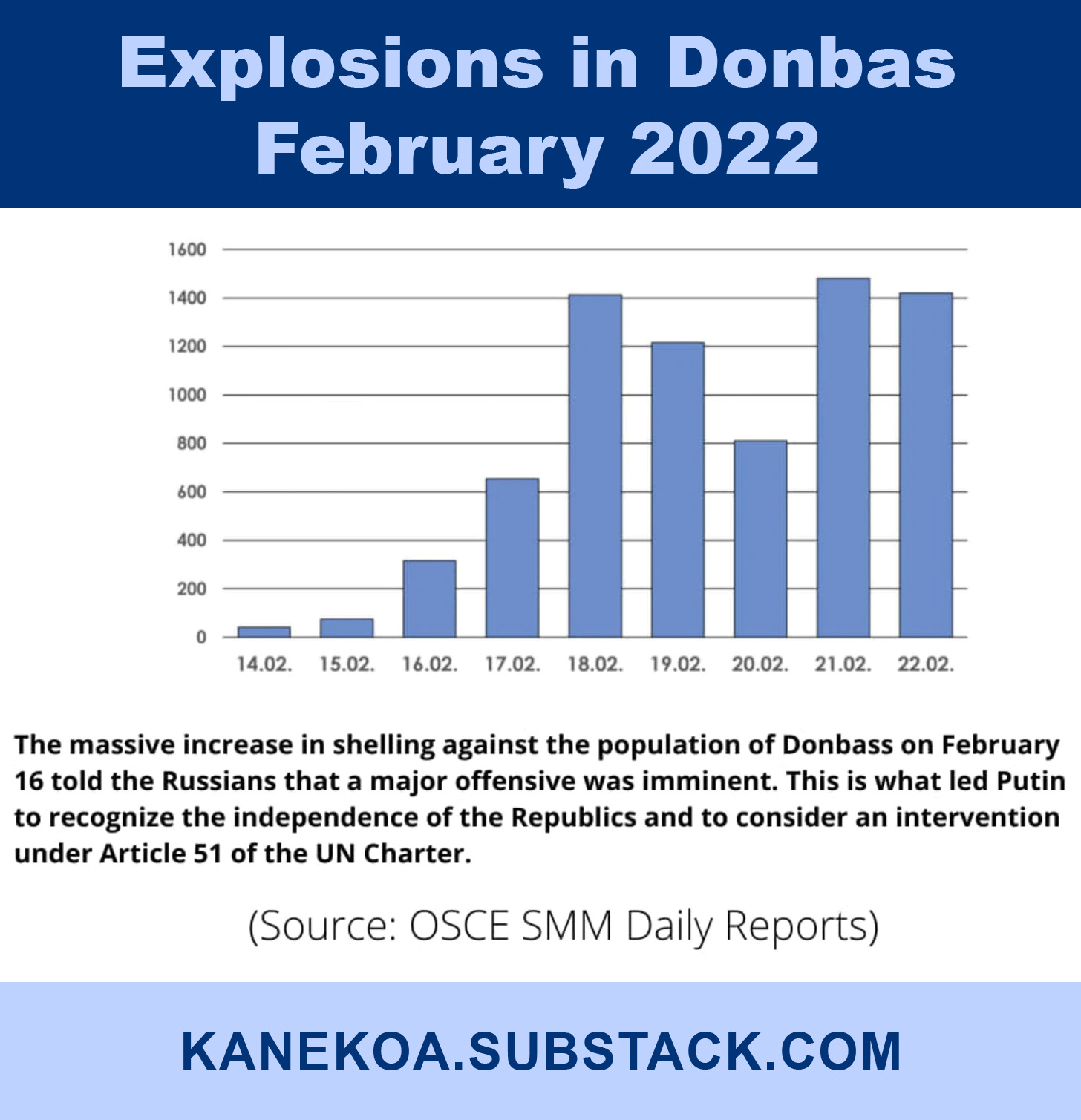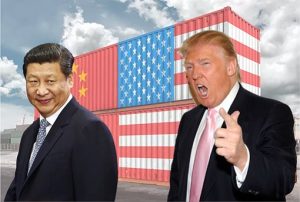All Global Research articles can be read in 51 languages by activating the Translate Website button below the author’s name.
To receive Global Research’s Daily Newsletter (selected articles), click here.
Click the share button above to email/forward this article to your friends and colleagues. Follow us on Instagram and Twitter and subscribe to our Telegram Channel. Feel free to repost and share widely Global Research articles.
***
The entire Earth is haunted by a specter, the specter of the complete possession of the human and the natural worlds by a band of unaccountable overlords. Those self-appointed global rulers, the billionaires, supported by the politicians and public intellectuals that they play with for sport, have carved out for themselves a separate reality where within they make up new rules for governance, local, national, and global, and then pass those rules down to us.
Central to this project is the radical alteration of the concept of possession.
Their audacious claim of possession of everything has been successful because it appears to be supported by all institutions of government, by universities and newspapers of repute, and other prominent international organizations which previously had legitimacy.
The billionaires have systematically laid down the foundations for this claim of ownership, using diverse tools, whether it be the control of our minds through constant bombardment with advertisements, the launch of natural assets companies (NAC) on Wall Street that claim private ownership of the oceans and the land, of the water and the air, of every aspect of the natural world, or the ownership of our bodies through the patenting of DNA and the claim of the right to force citizens to accept injections of privately-patented substances that alter the physical, genetic, and psychological state of the individual.
Through some magic process at the World Economic Forum the imperative to become modern and to be competitive as part of some imagined fourth industrial revolution gives these unaccountable authorities complete possession of all aspects of our existence.
Such a claim to unlimited possession of everything only works if the concepts of possession that we have relied on from the distant past are erased and the citizen loses all sense of affiliation with local or national, ethnic or spiritual, roots that might offer an alternative concept of ownership.
The billionaires, above all, do not want any concept of ownership that is linked to a sense of belonging, or of participation. The concept that we own the land, the waters and the myriad plants and animals only in that we belong to that land and to those waters, and we are responsible to them, is a vision of our world with ancient roots which cannot be tolerated by the high priests of the World Economic Forum.
Unlimited possession by multinational corporations, and by the governments that they have taken over, can only be achieved if all sense of belonging for people is torn to shreds, leaving behind no organizations of substance that can oppose this takeover except for the toothless controlled opposition that the global elite have prepared for us in advance–the Jeffery Sachs and Warren Buffets of the world.
Belonging, after all, is the central concept of the United States Constitution. Without the imperative that the citizen must belong to the republic, the property rights defined by that document are reduced to a travesty. Such was the intended consequence of corporations replacing the citizen with the consumer and the Constitution with markets over the past four decades.
Ultimately, the claim by the individual, the family, or the community to possess a house, a river, or a mountain, to be entitled to clean air or to healthy food that does not destroy the body, has been undermined by multinational interests who isolate individual from friends and family, from community members and like-minded people, thereby destroying any trace of belonging and encouraging a one-way hypnotic relationship with far off celebrities, cute pictures of fat cats, and glimpses of fashion and food, pornography and violence.
Fashion magazines, TV dramas, movies, cartoon characters, and video games induce an indulgent narcissistic cult of the self within which the individual competes against everyone. Personal possessions, not community solidarity, become the primary goal in life.

The ability of unaccountable multinational corporations to own everything, from farmland to houses, from transportation and phone lines, to the internet and media, is rarely questioned, and an alternative system is never suggested by any public intellectual.
Gone from our society is sharing and cooperation, serving those less fortunate, or for standing together for the common good against the greedy few.
The battle ground was well prepared by the corporate consulting firms before the first shot was fired, so as to facilitate this horrific final takeover.
The disenfranchisement of entire populations is not new in human history, but the current project is unprecedented in its scale and in its speed. If we were to look for a parallel, the destruction of the civilizations of North and South America by the Spanish, the Portuguese, the French, and the English from the 16th century to the 19th century is most apposite.
Just as was true then, this time a handful of private interests (like Blackrock, the modern equivalent of the British East India Company) have set out to destroy all customs, learning, institutions, values, and concepts in the nations targeted. But this time it is not the Aztecs and the Iroquois who are being targeted. This time, all civilizations on the Earth are fair game in the radical shift of ownership being planned by supercomputers.
The wild bid of the billionaires to buy up all farmland in the United States, Ukraine, Russia, and most every country, using the fake money cooked up by multinational investors using the cover of the Federal Reserve, and other central banks, resembles the process by which England and Spain claimed ownership of the “New World” by magic, introducing the alien, and completely artificial, concept of real estate.
They made up their own maps back in London or Madrid, just as billionaires make up cryptocurrency and derivatives in London and New York, and then used those maps to claim ownership of vast swaths of forest and plains, mountains and bays. The key to their success was the use of false authority, backed by pay-to-play public intellectuals, to define who owned what.
It was a financial operation, and it was often a military operation when force was needed to assure acceptance of the new order. But above all, then and now, the takeover was an ideological operation, an epistemological move whereby the concept of ownership, and of nationhood, were violently, but silently, remade by the imperialists sitting in their lavish parlors.
The first step toward taking possession of everything today was for the billionaires to take control of money, and of the institutions that defined its value: the Federal Reserve, the Department of Treasury, departments of economics and business at universities, economic experts, and the newspapers of repute that report on the economy.
Once the institutions that define value were taken over, corporations could then employ authority figures in those institutions to convince the people that the stock market had a relationship to the economy, that the efforts of corporations benefited the citizen.
Image source

We were told that we must, following some obscure law of nature, invest our savings in the stock market, and that the “innovative” geniuses of Wall Street like Elon Musk are entitled, because of their claims to be working for the good of humanity, to take over everything in the human realm.
The current project was greatly facilitated by the destruction of the humanities in education in the 1980s. Our children ceased to receive education in the fundamentals of metaphysics, aesthetics, morality and epistemology—and in art, literature and history.
My high school had a philosophy club back in the 1980s. Such extracurricular activities for high school students are rare today. Instead, mass-produced images are put out by multinational corporations like Apple and branded as, somehow, related to the humanities. In reality, the images of people engaged in artistic expression that are broadcast in IPhone commercials are simply a bid of corporations to lay claim to possession of individual expression of emotions and sentiments–to make creative acts a product that must be downloaded.
How did we get here?
When global capital shook off the chains that had been wound around its neck in the 1930s (and that required tremendous effort back then) it was able to bribe and to seduce intellectuals and policy makers so as to create an educational system that was engineered to destroy the capacity of the individual to understand how society functions, and to undermine the ability of the student for himself or herself. In the place of the temple education they erected a false palace of mirrors, filled with practical studies like economics, engineering, and public relations that are presented as more realistic than those fluffy humanities courses. But these new “practical” studies form a Trojan horse that is filled with an ideological soup mixing narcissism, consumption culture, short-term thinking, and scientism (the religion holding that science is an oracle presented by select authorities at blue chip institutions that cannot be questioned from below).
Economics and business administration, marketing and public relations are the new fields promoted by the rich that hold that growth and consumption are positives without a scrap of proof, and they create a mythical set of metrics for success in business that are less scientific than bloodletting techniques of the 18th century.
Four decades of our country stewing in this ungodly soup has produced a generation of highly-educated citizens who are good at taking tests and at following directions, but who are incapable of perceiving the manner in which society is manipulated in an ideological and aesthetic sense.
Unlike the intellectuals of the 1930s, the last time we ran into a crisis on this scale, current intellectuals are blind to ultimate causes, incapable of grasping class conflict, or ideological indoctrination, or the manipulation of the people by technology. In fact, AI, the primary weapon used to degrade the capacity of citizens to think independently, is promoted as a positive for society by treasonous intellectuals.
For pay-to-play intellectuals, scholarship means that facts are piled up in meaningless piles and then exchanged for grants from foundations. Distinguished scholars whose chairs are endowed by wealthy patrons with agendas to alter the nature of possession, gather at Princeton University or Brookings Institution to congratulate each other on their latest books.
The purpose of their research is to give legitimacy to the take over of everything by the few and thus rise in their careers, obtaining the public recognition in the corporate-controlled media that soothes their egos. They are not interested in understanding how the world works; they do not feel any moral responsibility beyond lining their own nests.
This criminal operation, reinforced by subliminal messages in advertising, in posters, and billboards, in TV commercials, or in television dramas and movies, tells us from childhood how we should define possession and belonging. We are told that wealth rightfully belongs to people who demonstrate no moral responsibility and live glamorous lives, consuming grotesque amounts of resources. They are to be envied and admired, we are told.
These images of consumerist possession possess us in the manner that one is possessed by an evil spirit.
There are no longer regulators or independent intellectuals out there to step forward to declare that manipulative advertising, deceptive education, is an assault on the ability of citizens to think for themselves. Few citizens are confident enough in their understanding of the world to recognize that this harmless advertising we see around us is, in fact, a war waged on our souls.
Possession has ceased to be defined by ancient customs and habits, by obligations and moral imperatives, or even by laws and regulations. Rather possession has become a magical state which is determined by those with the ability to alter perceptions. If Twitter, the New York Times, and Google announce that someone owns something, it becomes the truth: It becomes theirs.
In this new culture, one can possess objects instantaneously by ordering them over the internet. Just a few dollars of digital currency and it is yours. You are encouraged to possess things that are insubstantial, like castles in Mine-craft. For many, the objects possessed virtually seems more substantial than any real object.
But such possessions can be taken away just as easily by unaccountable forces. And there is no rule, no means to appeal, in the digital transactions that increasingly define possession.
Just miss a few payments for your mortgage, or fall behind on your bill for internet service, and suddenly you are homeless and cut off from the world. Faceless and unaccountable powers are empowered to determine what you can and cannot do.
In effect the house, the computer, the internet service and everything else you supposedly possess is ultimately owned by the banks and you have only conditional rights to use them as long as you conform to certain conventions.
Possession has become radically tangential, unbearably contingent, and tantalizingly ephemeral.
Now that possession only exists for the citizen in an abstract manner, while all the tools that define possession are controlled by private IT firms that determine our online communication, and increasingly control local and central government as well, we have been primed for the final stage of disenfranchisement: the introduction of digital currencies that will allow hidden powers to stop possession with the flip of a switch.
A brief history of possession
Let us consider the transformation of possession that took place over the last three hundred years. Ancient peoples lived in small groups and the land was common to them. The home was private property in the sense that it had belonged to the family for generations, but no individual was free to do whatever he pleased with the land he or she inhabited. The individual was part of a family and the family, as part of the community, was but custodian of the land for future generations.
Possession could not be separated from belonging. You belonged to the land, to the mountains and the rivers, as much as, or more than, you possessed them.

A drawing depicting a 17th-century trade scene between Dutch merchants and Native Americans. Common trading items were beaver pelts, Dutch tools, and wampum beads used as currency. (IMAGE COURTESY NORTH WIND PICTURE ARCHIVES)
The growth of international trade in the seventeenth century, the concentration of wealth in the hands of bankers and merchants in the 18th century, the displacement of farmers from their lands through the enclosure acts in Britain and elsewhere from that time, and the emergence of workers dependent on paid work in factories in the 19th and 20th centuries who did not own anything, could not produce their own food, and did not belong to any social institution or organization, revolutionized the concept of possession.
New technologies undid, or undermined, the ancient technologies for growing crops, forging iron, blowing glass, weaving clothes, cobbling shoes, and generating energy by wind, water, or horse.
All around the Earth, land that had belonged to the people, who also belonged to it, became the property of strangers, of far off nations, and of “corporations” and “trusts” –opaque organizations that protected owners from any personal responsibility.
Along the way, the pseudo-scientific discipline of geography took hold in the universities of London and Paris, Berlin and Boston, an academic field wherein powerful people in cities made up maps with pretty colors that define where nations start and end, which corporation, or which individual, owned enormous swaths of Africa, the Americas, Asia, and Oceania.
Those empowered by this seizure, were refined and educated men, wearing three-piece suits when they gathered at the club for gin and tonics, surrounded by scholarly books and exquisite paintings.They then had their classmates from Oxford and Princeton pass laws in their national assemblies, that made the mountains and rivers, the fields and bays, the islands and peninsulas of far off lands suddenly theirs. It was a ridiculous magic trick that was justified by using the cloak of science and the fairy tale of civilization.
The destruction of traditional concepts of possession by a tiny handful of colonialists between the seventeenth century and the nineteenth century, is immediately relevant to us because the current push to disenfranchise and destroy the mass of humanity today follows virtually that same game plan.
The cult of the new made long-term relations with places and things less important, even a burden to those who wished to be “modern,” to be fashionable.
Suddenly, a two-hundred year old house in one’s native village is worth less than a tiny apartment in the city with which one has no connection at all.
This new apartment offers a television and air conditioning, but it could be easily taken away through the use of eminent domain, rigged-up bankruptcy, or any number of tricks.
The shift in the nature of possession is also a product of the promotion of trade. The growth of global trade routes and supply chains, invisible to all but the specialists, has created a real economy, following strict rules that is never described in any newspaper.
Corporations outsource manufacturing to the far corners of the Earth not simply so as to take advantage of low labor costs, but also so as to take complete control of how things are made, distributed, and sold. There is no recourse the citizen can take in response to the horrific economic implications of how products are produced before they arrive at Walmart.
And in this new economy there is no space for a craftsman, a farmer, or a carpenter–none of the profits find their way back to the community. Almost all profits go to the billionaires hiding behind the corporations.
Mass production is held up, without a scrap of scientific data, as a sign of human progress. A society in which the necessities of daily life are produced by strangers, often offshore, through unaccountable corporations, is presented to our children as an ideal.
The makers of things and the users of things have been separated by an unbridgeable chasm.
To put it simply, the means of production, distribution, advertising, and consumption have been completely possessed by the billionaires.
This possession takes the form of invisible network of global manufacturing, logistics, distribution, and retail sales, that is supported by the private banks that underwrite the entire game.
No political candidate of the left or the right will even mention this possession of the entire system when running for office.
Money, not the ancestors, nor the traditions of the village, nor ethical imperatives to be a good son, mother, or neighbor, has become the only determinant of ownership–and that money is itself a chimera cooked up by the central banks.
When philosophy was murdered in the educational system and extirpated from intellectual discourse, when citizens were torn away from nature, from agriculture, and from communities violently as part of a new culture of modernity that glorified the radical dependence of the individual on systems of production that were controlled by corporations, on money controlled by banks, they wandered out into the swamp of slavery.
But the posters around them, the popular Hollywood movies they watch, suggest that personal freedom, and true self-expression, can only be achieved by becoming dependent on a money economy.
As a result, most of us pass our days without asking ourselves what possession means.
Of course, you might answer, we possess our clothes, our furniture, the computers and the software that we use at work, the house in which we live, and that ownership is protected by laws. Our bodies are ours and we are free to choose what we buy and where we live.
That form of possession is fool’s gold. Merely default on a loan, even though the money that the bank loaned you was made up from thin air by that bank, and you will find that you do not own anything.
Debt is roped to possession. Everything you might desire to possess, and the commercial media from morning to evening is set on brainwashing you into believing that you must possess, requires that you borrow money to obtain it.
You have no choice but to take that loan in order to get the education necessary to find employment, or to buy the automobile you need to go to work.
The banks and the corporations are authorized to penalize you for nonpayment of these loans, and to fine you as they see fit for late payments. You have no right to demand anything in the “contracts” you must sign to get the loans required.
They can easily force us to sell all your possessions so as to avoid homelessness and destitution. In many cases, the banks are authorized to take those items from us using the police. And the police are authorized to seize your possessions on the flimsiest excuse.
Your right of possession as a citizen is radically tangential, but the possession of banks and multinational corporations is assumed to be legitimate even when it is obtained using dubious assets like stocks, derivatives and stocks. These mythical creatures create value by employing authority, media coverage and on occasion, the threat of force.
Yet, as unreal as these products may be, the system is set up so that they can be used by institutional investors as collateral to buy up the land that we use to grow food, to control the energy that we need to move, or to heat our homes, and to monopolize everything of value in the world through acts of black magic.
Armies of economics professors and business journalists line up to give this occult form of transsubstantiation a veneer of legitimacy. The primary job of experts in economics is to convince us that the stock market, Wall Street, represents the economy, and that the rise and fall of those stocks reflects our well being–not the profits of the rich.
But this Wall Street magic is not magic at all. They create inflation for the rest of us by devaluing the money in our bank accounts; They set up a series of financial crises for ordinary people that allows the rich to use the funny money pumped into the stock market by the Federal Reserve to buy up stock, or to buy up the real estate that the little people are forced to sell.
The trillions of dollars that the billionaires created in this massive Ponzi scheme called the stock market, along with trillions of dollars more produced by money laundering through the military, allows them, using their various holding companies, not only to take possession of real things like land and water, food and mineral resources, housing and transportation systems.
It also allows them to hire advertising firms, consulting groups, and politicians to redefine the nature of possession so that their power will be unlimited and we will be slowly reduced to slavery.
Possession is the true name of the game.
Our last stand
Sadly, the more brazen the grab for possession of everything grows, the more passive and confused the population becomes. The shifts are so dramatic, so overwhelming, that most are lost in the mad rush forward.
Following the fictions fed to them in the media, many see Warren Buffett or Elon Musk, not as criminals trying to destroy humanity, but as models of how one can grow wealthy and independent by being innovative. The enemy of humanity are painted as a concerned friends.
We have entered the critical period when the last traces of freedom and belonging are being swept into the ash bin of history. All that will be left will be possession by the few and the resulting slavery for the many.
Will we have the self-awareness and bravery to make a stand?
*
Note to readers: Please click the share button above. Follow us on Instagram and Twitter and subscribe to our Telegram Channel. Feel free to repost and share widely Global Research articles.
This article was originally published on Fear No Evil.
Emanuel Pastreich served as the president of the Asia Institute, a think tank with offices in Washington DC, Seoul, Tokyo and Hanoi. Pastreich also serves as director general of the Institute for Future Urban Environments. Pastreich declared his candidacy for president of the United States as an independent in February, 2020.






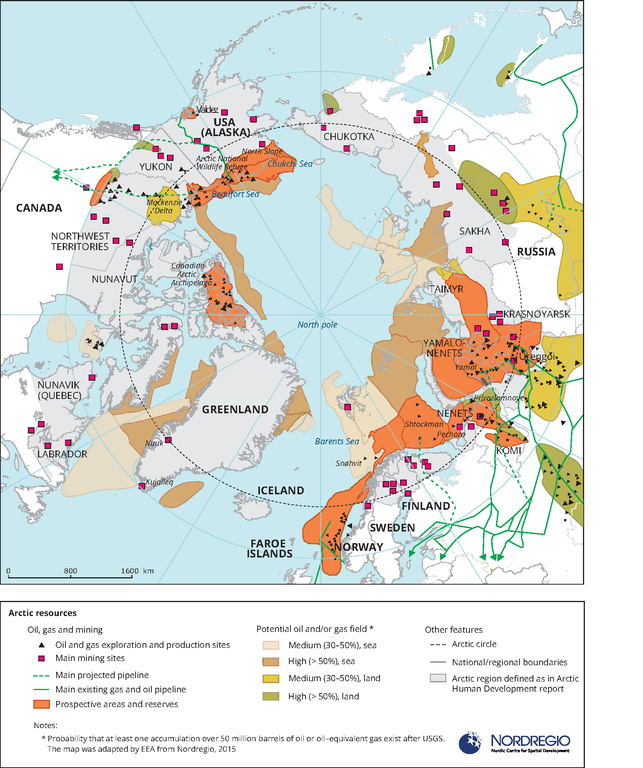
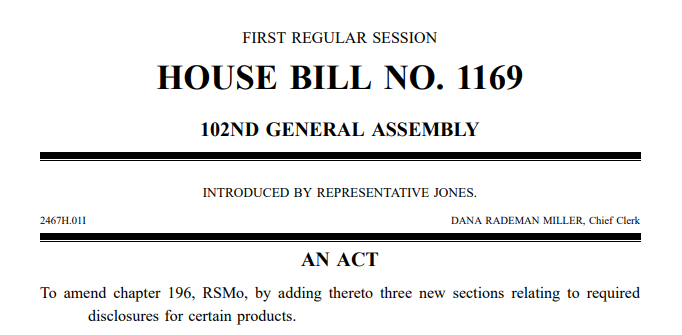
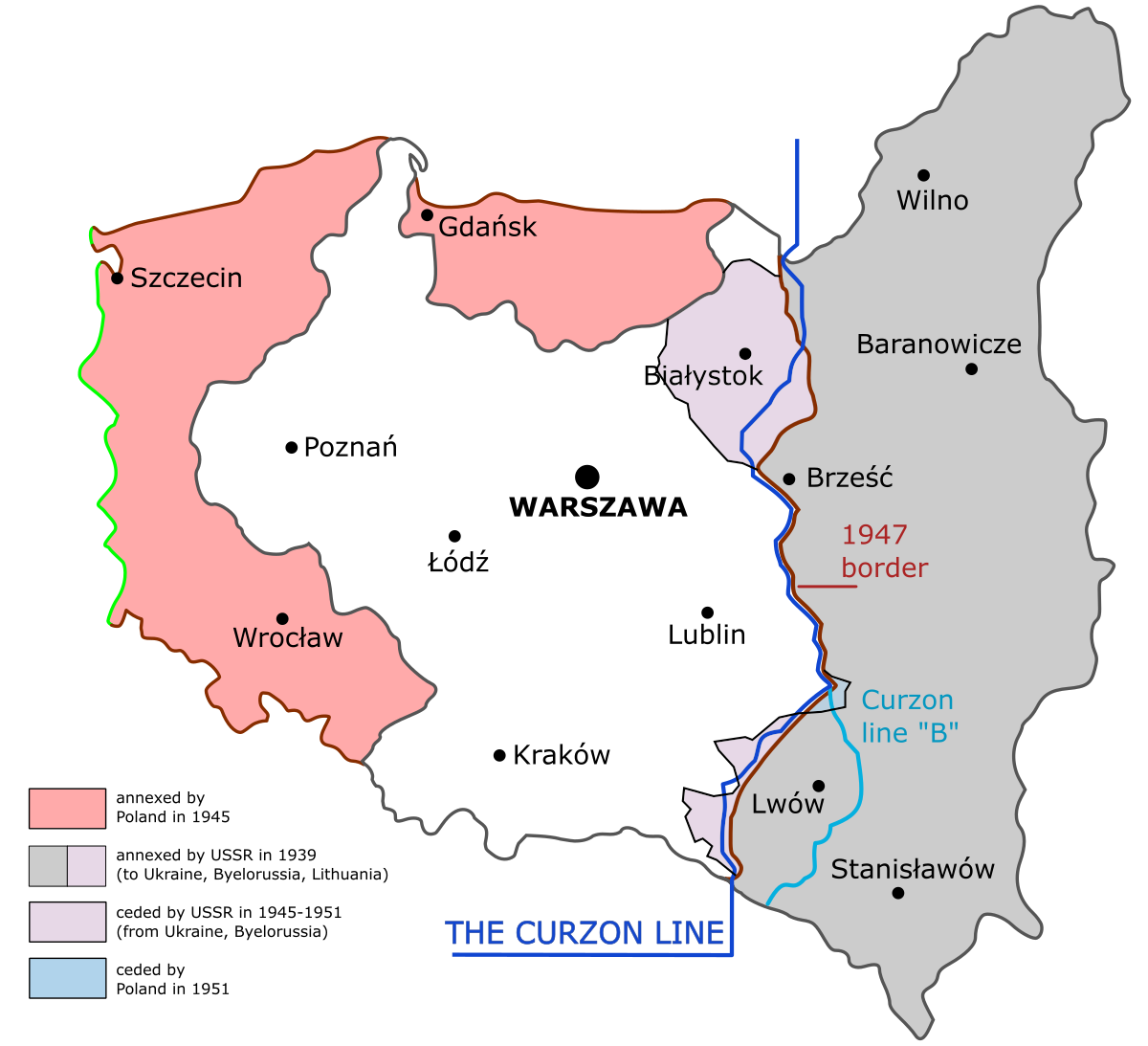





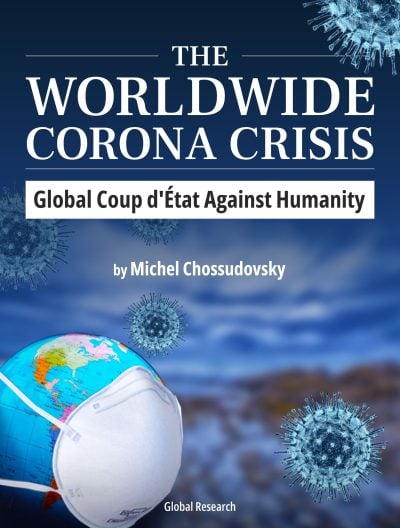 The Worldwide Corona Crisis, Global Coup d’Etat Against Humanity
The Worldwide Corona Crisis, Global Coup d’Etat Against Humanity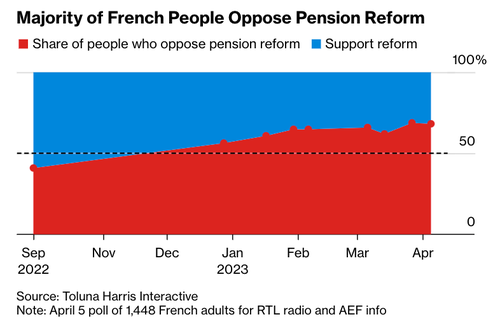
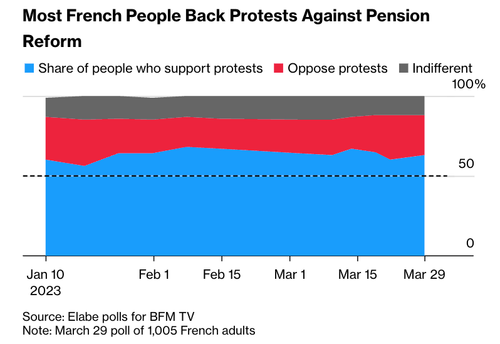


 Ophthalmologists Now Ethically Obligated to Denounce COVID-19 Vaccines, as 20,000 New Eye Disorders Are Reported
Ophthalmologists Now Ethically Obligated to Denounce COVID-19 Vaccines, as 20,000 New Eye Disorders Are Reported France on Fire: “Fires” Everywhere. Who Is Behind them? “Men in Black”
France on Fire: “Fires” Everywhere. Who Is Behind them? “Men in Black” Stay Home, Save Lives: Uncovering the COVID Deception
Stay Home, Save Lives: Uncovering the COVID Deception 9/11 and the COVID-19 Hoax in the Transition to Governance by “Emergency Measures”
9/11 and the COVID-19 Hoax in the Transition to Governance by “Emergency Measures” History of US-NATO Military Campaigns (1991-2023)
History of US-NATO Military Campaigns (1991-2023) What Kind of Ukraine Do We Support?
What Kind of Ukraine Do We Support? Xi-Putin Summit: Strategy Meeting for the Coming East-West War?
Xi-Putin Summit: Strategy Meeting for the Coming East-West War? Hundreds of French Citizens Suffer Cardiac Events After Bivalent Boosters
Hundreds of French Citizens Suffer Cardiac Events After Bivalent Boosters Putin’s Enormous Blunder
Putin’s Enormous Blunder Central Bank Digital Currency (CBDC): The Weaponization of Money? WHO’s Health Tyranny: Towards a Totalitarian World Government? No Way!
Central Bank Digital Currency (CBDC): The Weaponization of Money? WHO’s Health Tyranny: Towards a Totalitarian World Government? No Way! The Dollar Is in Trouble! Here Are 7 Signs that Global De-Dollarization Has Just Shifted Into Overdrive
The Dollar Is in Trouble! Here Are 7 Signs that Global De-Dollarization Has Just Shifted Into Overdrive Biden to Order US Dollar Replaced with Trackable “Spyware” Version?
Biden to Order US Dollar Replaced with Trackable “Spyware” Version? History: The Federal Reserve Cartel: Freemasons and The House of Rothschild
History: The Federal Reserve Cartel: Freemasons and The House of Rothschild Iraq Twenty Years after “Shock and Awe”: The Mysterious Death of David Kelly
Iraq Twenty Years after “Shock and Awe”: The Mysterious Death of David Kelly Global Planned Financial Tsunami Has Just Begun
Global Planned Financial Tsunami Has Just Begun A Most Perfect Genocide
A Most Perfect Genocide The Beginning of the End of Israel
The Beginning of the End of Israel The Banking Crisis Gets Worse! $1.7 Trillion in Unrealized Losses Loom as U.S. Banks Rapidly Bleed Deposits
The Banking Crisis Gets Worse! $1.7 Trillion in Unrealized Losses Loom as U.S. Banks Rapidly Bleed Deposits The Great Food Reset Has Begun
The Great Food Reset Has Begun Bird Flu Scare Narrative Ramps Up
Bird Flu Scare Narrative Ramps Up



